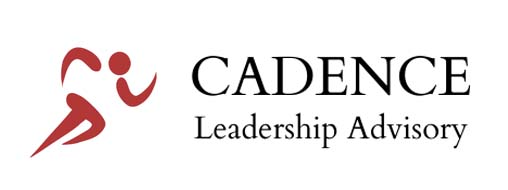Andrew* was stressed and burnt out. He worked very late most nights of the week in a desk-bound job. His incredible eye for detail, his major strength, had been overplayed and he was working too much and too intensely. Not only was he spending too little time on important things like his marriage, family and diet, he had limited energy left to spend on leading the members of his team. His work had become his life and despite some effort to correct the situation, he failed to strike a sustainable balance.
Balance is defined by leadership assessment tool The Leadership Circle as “the ability, in the midst of conflicting tensions of modern life, to keep a healthy balance between business and family, activity and reflection, work and leisure”. In short, it speaks to our tendency to be self-renewing, and to deal with life’s stresses without losing your sense of self. Leaders who demonstrate balance at the elite level are able to maintain high performance even while operating in stressful environments. They are able to attain a sense of inner equilibrium through balancing the various aspects of their lives. A keen focus on personal health, and a deep understanding of core values are essential elements. Balance is one of four competencies that contribute to the Self-Awareness dimension, which reflects a leader’s orientation to ongoing professional and personal development.
The Healthy Part
In the earlier stages of my corporate career I noticed how some people came across more organised, poised and considered than others. They were the “go to” people for information and social connection, and most did some form of physical exercise as part of their working day.
I would often wonder how they could maintain such a persona. Most had families, teams of people reporting to them and complex client relationships to manage. All had aspirations for increased responsibility. They all worked hard, but rarely seemed to work to excess. I compared this to others I saw with papers always piled high on their desks, regularly working late, who rarely shared much about themselves.
“It speaks to our ability to be self-renewing, and to deal with life’s stresses without losing your sense of self”
Looking back on this it’s clear these leaders understood their relationship with life stressors and had chosen health and wellbeing as one way to manage it. The dopamine released from exercise provided them satisfaction, motivation, and benefited their moods, sleep patterns, and their ability to concentrate. Further, the attention they gave to physical exercise and diet provided scope for reflection – those moments when they were able to “lose themselves” and allocate time to think about what works for them, what doesn’t, and why. For most, allocating time for exercise was a non-negotiable, putting their time management into focus, along with working the urgent and important activities as priorities, rather than items to defer until things got less hectic.
The Values part
A general manager once said to me “You need to put your oxygen mask on first, before you can help others”. While I didn’t initially grasp what they were saying, it eventually dawned on me – to lead effectively, you must be clear on who you are, and what you stand for. That’s where a clear understanding of your values comes into play.
Put simply, your values are the beliefs and principles that are important in the way that you live and work. In my case, it starts with making a contribution to people’s development through curiosity, maintaining respect for people, and doing the things I say I am going to do.
“They all worked hard, but rarely seemed to work to excess”
Having a value system is powerful, as it provides you direction and clarity about what is important. However, our value system can sometimes tie us up in knots. An important work commitment can often clash with family events that only occur once, or a spontaneous idea to socialise with friends can get in the way of a gym session you’ve been looking forward to. These situations are when the quest for elite balance can be tested – and a sense of maintaining perspective is critical.
What are practical ways to achieve elite balance?
In her recent book Scaling People, Claire Hughes Johnson (a Stripe and Google executive) wrote of the imperative to build self-awareness as a leader. She describes how “the more senior you become, the more creative reality gets at finding ways to beat you up every day”. She explains the need to diagnose what gives and takes your energy as the forerunner to how to manage your time and energy. Once you understand the kind of work that energises and demotivates you, you can use the following tactics to give yourself the best shot at maintaining high performance in times of stress:
Delegate. Hughes Johnson says “almost everything on your plate is a growth opportunity for your team”. Delegating well develops your people, it builds trust with your team, and helps you retain good talent. The benefit for the leader chasing elite balance is the freeing up of time to concentrate on important and urgent work.
Set Hard Boundaries. If you need to have breakfast with the family three times a week to satisfy personal values, and you know this is essential for you to achieve the other important things in your life, you can ensure it occurs through firm diary management.
Compartmentalise. Some tasks drain our energy, but they still need to be done. Leaders with elite balance ensure that on such days they also schedule interaction with people and activity that provide an energy boost – even if that is limited to a short walk between meetings.
Make Time for Personal Reflection and Renewal. This is the activity often overlooked by leaders in general, usually due to a perceived lack of time. But it can be among the most powerful tools available in the quest for elite balance. Through simple journaling, or clear thinking time, reflecting on outcomes of the activities you’ve been involved in (without judgment) and observing processes sets you up for learning. By then adding a layer of questioning (what worked well and why, what didn’t work well and why) one can plan for the next engagement. This process also serves as a way of posing a personal challenge question – are the important aspects of my life in balance?
“Our values system can sometimes tie us up in knots”
Let’s check in on Andrew. What is his best option knowing what we do now? He could start by valuing his time more. He doesn’t have to say yes to every task presented. His normal operating style affords him very limited control. With talented people under him craving more work variety, placing trust in them through delegating more would give him more reflection time back. That decision opportunity, in itself, is a potential moment of change.
So who personifies elite balance?
Kieren Perkins OAM, CEO of the Australian Sporting Commission (ASC), revealed in a recent interview with Company Director how he wished he had paid more attention to his future financial outcomes during his Olympic swimming career. He felt that with better mentorship and guidance around career development, his “transition cycle” would have been shorter. Perkins is using his own career experience to improve the situation for today’s athletes, developing the “Play Well, Win Well” strategy within ASC, focusing on the health and wellbeing of everyone involved in sport. This will allow today’s sportspeople to perform at the highest level during their sporting career and begin planning for their futures after sport.
Rosie Batty AO, became a domestic violence campaigner after her 11-year-old son was murdered by his father in 2014. Despite experiencing incredible grief, Batty began speaking publicly and eloquently about her experience the morning after her son’s murder. As Australia’s foremost domestic violence campaigner, Batty has written two books and achieved significant structural, policy and legislative change. She achieves balance in life through walking, having completed the Larapinta Trail in the NT and the Coast to Coast Walk in the UK, and is driven by the hope that campaigners like her are making a difference to the social awareness of domestic violence.
David Pocock is an Independent senator in the Australian parliament. Following his retirement from playing rugby for Australia, he began working as an environmentalist and social justice advocate, before his election to parliament in 2022. An avid fitness fanatic, he has prosecuted an agenda to address corruption in government, campaigned for increases in expenditure on renewable energy sources, and restoring the rights of the territories to legislate on euthanasia. An admirer of the work of author James Hollis, he speaks of “the challenge to look within, in order to become more ourselves and have more to offer the world….in a world that seems to demand so much of us, it is often hard to find this time”.

What are the competencies adjacent to balance?
It’s also worth considering the competencies adjacent to Balance in The Leadership Circle model that contribute to the Self-Awareness dimension.
Firstly, being a Selfless Leader refers to the extent to which you pursue service over self-interest, where the need for credit and personal ambition is far less important than creating results which serve the common good;
Composure measures your ability to remain composed and centred in the midst of conflict and stressful situations; and
Personal Learner measures the extent to which you demonstrate an active interest in learning, personal and professional growth. It measures how actively you pursue becoming all you are capable of in terms of self-awareness, wisdom, knowledge and insight.
A leader with elite balance is likely to also register highly on each of these dimensions. Even from the brief outline of Perkins, Batty and Pocock above, and what we know of their broader achievements, one could comfortably conclude at least two of these competencies appearing strongly.
So what happened with Andrew? At last check, he remained in largely the same role as previously, but with less direct people responsibility. In one way, that is a positive – people leadership was not his natural suit. But it took a health scare for this to occur. After taking some time off, he sought out a role model that personified a strong sense of balance, and he has started to place hard stops on the number of hours worked in a day. But it has been a long road to achieve this change. Andrew’s situation is sadly very common in corporate settings, where executives make the mistake of placing the well-being of their employer above their own.
If you feel you are spending too much time meeting obligations, and aren’t sufficiently present for those you care about, it’s time to take control of your situation. As we have seen, there is no one way to achieve elite balance – but trusting your instincts and seeking support is a great way to begin.
Andrew’s name has been changed to respect confidentiality.






